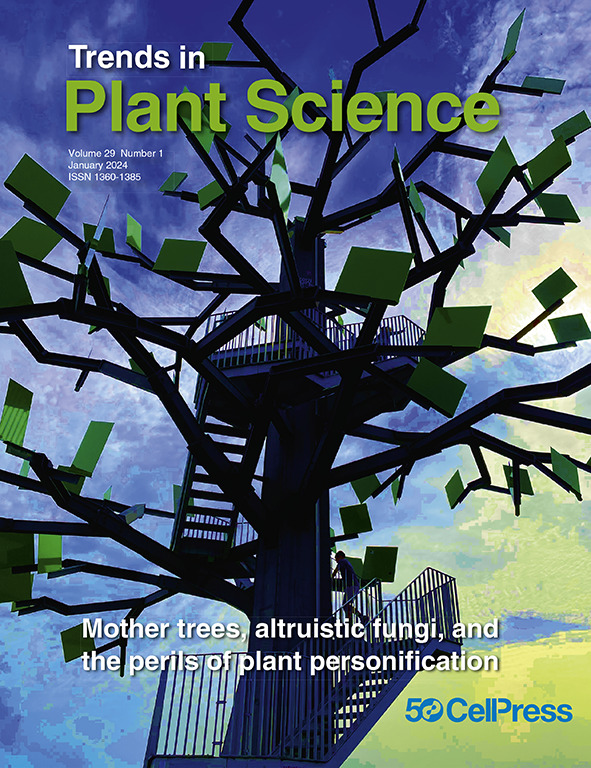以保守的分泌效应因子为目标控制稻瘟病。
IF 17.3
1区 生物学
Q1 PLANT SCIENCES
Trends in Plant Science
Pub Date : 2025-01-01
Epub Date: 2024-09-03
DOI:10.1016/j.tplants.2024.08.001
引用次数: 0
摘要
植物病原体通常会分泌效应物来抑制宿主的免疫反应,从而导致效应物触发的易感性(ETS)。植物利用核苷酸结合的富亮氨酸重复受体(NLRs)来检测特异性效应物并激发效应物触发免疫(ETI)。最近的两篇论文(Liu 等人和 Zhang 等人)在通过调节 ETS 和 ETI 控制稻瘟病方面取得了可喜的进展。本文章由计算机程序翻译,如有差异,请以英文原文为准。
Targeting conserved secreted effectors to control rice blast.
Plant pathogens usually secrete effectors to suppress the host immune response, resulting in effector-triggered susceptibility (ETS). Plants use nucleotide-binding leucine-rich repeat receptors (NLRs) to detect specific effectors and elicit effector-triggered immunity (ETI). Two recent papers (Liu et al. and Zhang et al.) have made promising progress in controlling rice blast by modulating ETS and ETI.
求助全文
通过发布文献求助,成功后即可免费获取论文全文。
去求助
来源期刊

Trends in Plant Science
生物-植物科学
CiteScore
31.30
自引率
2.00%
发文量
196
审稿时长
6-12 weeks
期刊介绍:
Trends in Plant Science is the primary monthly review journal in plant science, encompassing a wide range from molecular biology to ecology. It offers concise and accessible reviews and opinions on fundamental plant science topics, providing quick insights into current thinking and developments in plant biology. Geared towards researchers, students, and teachers, the articles are authoritative, authored by both established leaders in the field and emerging talents.
 求助内容:
求助内容: 应助结果提醒方式:
应助结果提醒方式:


